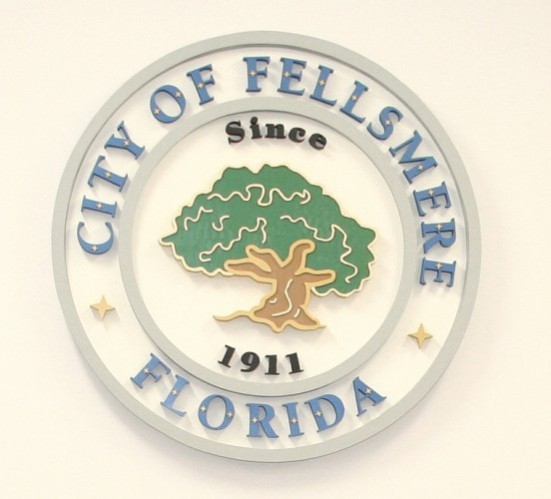FELLSMERE — Throughout Indian River County, Habitat for Humanity has been building homes, helping those in need to have a place of their own to call home.
With the shifting economy and the escalating costs of new building materials, the non-profit is adjusting its model – why build new when you can repair and rehab?
Habitat for Humanity President and CEO Andy Bowler told Fellsmere City Council recently that the organization is three years away from building out Fellsmere’s Habitat community, Grace Meadows.
In the meantime, Habitat and Fellsmere have been discussing a partnership to identify historic homes and working with homeowners to make repairs or otherwise rehabilitate them so they remain standing.
Bowler told the council that in the last decade, the cost of building materials has increased 83 percent.
“Yes, we are a charity, but we’re not that charitable,” Bowler said, explaining that it can cost $100,000 to build a new home but Habitat can only sell it to the new homeowner for what it’s appraised for – approximately $70,000 – so Habitat loses $30,000 on each new home it builds.
By refocusing its efforts to critical home repairs and rehabilitating foreclosure homes, the organization can serve more families in the long term, according to Bowler.
“We’re still serving families,” he said.
Bowler plans to have his team drive through Fellsmere to perform a “windshield” survey – noting which homes look to be run-down and in disrepair.
Habitat already performed that study in Gifford, creating a database of potential beneficiaries.
“We know there’s a need in Fellsmere,” said LaKisha Erwin, Habitat’s Neighborhood Revitalization Initiative coordinator. “And we’d love to meet that need.”
Bowler said that those who would qualify for assistance from Habitat would have to demonstrate a need for help, a willingness to help perform the necessary work, and have the ability to repay the costs.
As with a new Habitat home, the soon-to-be homeowner puts in a set amount of sweat equity, helping to build that or another Habitat home.
For rehabilitation work, the homeowner would perform 60 hours of sweat equity, Bowler said. For critical repairs, the homeowners would have to volunteer in some way for Habitat if unable to assist in the repair work itself.
As for payment, they’d be required to cover the cost of materials only.
“I can think of so many” elderly or disabled who need the help, said Fellsmere Councilwoman Sara Savage.
To get the ball rolling in Fellsmere, City Manager Jason Nunemaker and Bowler agreed to limit the scope to only historic homes in the city core first.
“Ultimately, we’d like to move it city-wide,” Nunemaker added.
“There’s plenty in that area to keep you busy for a while,” Mayor Susan Adams said.
Bowler told the council that the best time of year to tackle such repair and rehab projects is between May and October, which gives Habitat and the City of Fellsmere time enough to perform the windshield study and line up homeowners in need of assistance.
Anyone interested in learning more about the Neighborhood Revitalization Initiative or applying for the program is encouraged to call Habitat for Humanity at 772-562-9860, ext. 211.

